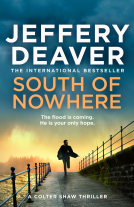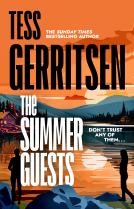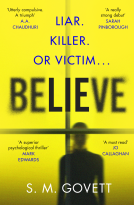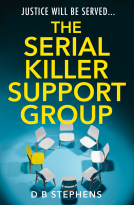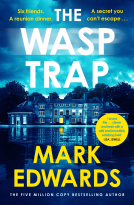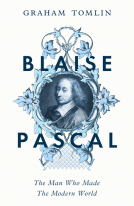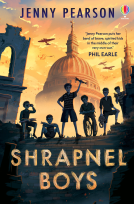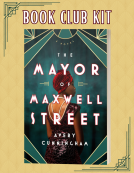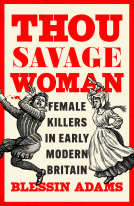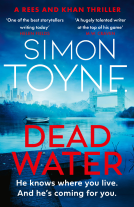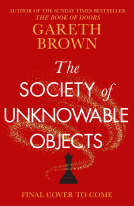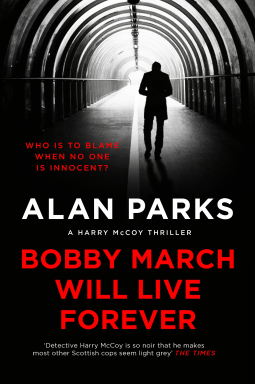
Bobby March Will Live Forever
by Alan Parks
This title was previously available on NetGalley and is now archived.
Send NetGalley books directly to your Kindle or Kindle app
1
To read on a Kindle or Kindle app, please add kindle@netgalley.com as an approved email address to receive files in your Amazon account. Click here for step-by-step instructions.
2
Also find your Kindle email address within your Amazon account, and enter it here.
Pub Date 7 Apr 2020 | Archive Date 5 Mar 2020
Talking about this book? Use #HarryMcCoy #NetGalley. More hashtag tips!
Description
The papers want blood.
The force wants results.
The law must be served, whatever the cost.
July 1973. The Glasgow drugs trade is booming and Bobby March, the city’s own rock-star hero, has just ODed in a central hotel.
Alice Kelly is twelve years old, lonely, and missing.
Meanwhile the niece of McCoy’s boss has fallen in with a bad crowd. When she goes AWOL, McCoy is asked—off the books—to find her.
McCoy has a hunch. But does he have enough time?
A Note From the Publisher
The Third book in the Detective Harry McCoy series, following from Bloody January and February's Son
Advance Praise
PRAISE FOR BLOODY JANUARY:
'An old-school cop novel written with wit and economy . . . Think McIlvanney or Get Carter'
IAN RANKIN
'A potent tale of death . . . Alan Parks's excellent first novel propels him into the top class of Scottish noir authors . . . Detective Harry McCoy . . . is so noir that he makes most other Scottish cops seem light grey'
The Times, Book of the Month
'1970s Glasgow hewn from flesh and drawn in blood'
PETER MAY
'The latest star of Tartan noir — perhaps even a successor to the late, great William McIlvanney . . . Gripping, utterly authentic and nerve-jangling, this novel announces a fine new voice in crime writing'
Daily Mail
'Gripping and violent, dark and satisfying. I flew through it'
BRET EASTON ELLIS
'Bloody and brilliant. This smasher from Alan Parks is a reminder of how dark Glasgow used to be'
LOUISE WELSH
'[McCoy] is a great character and his patch and period are vividly and skilfully portrayed. Denise Mina and Ian Rankin had better watch out'
Evening Standard
'Gripping and well-crafted'
QUINTIN JARDINE
'A blistering plot, unforgettable characters and writing so sharp it's like it's been written with a knife . . . Detective McCoy is a true noir antihero and the perfect guide through the vice and violence of Glasgow's underbelly. Bloody January firmly sets Alan Parks in the same league as Ian Rankin and Louise Welsh'
SARAH PINBOROUGH, bestselling author of BEHIND HER EYES
'The plot rattles along with nice twists and turns from the first chapter . . . Fans of Tartan Noir will lap this one up'
Allan Massie, The Scotsman
'A thrilling debut from a very promising talent'
RAGNAR JÓNASSON
'Seriously good. It's brilliantly evocative of the 1970s in Glasgow (and I should know as I was there!). I loved Alan Parks' characters and I want to read a lot more of Detective Harry McCoy!'
ALEX GRAY
'A brilliant debut. Taut, violent and as close as you'll get to 1970s Glasgow without a TARDIS. Parks is a natural successor to William McIIvanney'
JOHN NIVEN
PRAISE FOR FEBRUARY'S SON:
'A riveting journey through the grim and gritty dark side of 1970s Glasgow . . . A powerful slab of tartan noir'
Herald
'Pitch-black tartan noir, set in Seventies Glasgow . . . Compelling . . . With an emotional heart that's hard to ignore'
Daily Mail
'Excellent . . . Full of surprises, streaked with compassion – that highlights the art of tartan noir. McCoy and Cooper . . . make one hell of a damaged duo. Their fascinating relationship provides the real intrigue'
Evening Standard
'[An] engaging tartan noir page turner'
Scotsman
'Parks' writing style is to the point . . . The plot zips along . . . McCoy is a man many will enjoy spending time with. Casting agents will already be weighing which actor should pull on his raincoat'
iNews
'The no-holds-barred action and dialogue smack you in the face like a Glasgow kiss. Cracking'
The Sun
Available Editions
| EDITION | Other Format |
| ISBN | 9781786897145 |
| PRICE | US$26.00 (USD) |
| PAGES | 320 |
Featured Reviews
 Paromjit H, Reviewer
Paromjit H, Reviewer
This is the third in Alan Parks's stellar Scottish noir historical crime fiction series featuring the anti-hero DI Harry McCoy set in a 1970s violent and brutal Glasgow of hard men, criminal gangsters, bent and corrupt police officers, fugged and smoky pubs with the social norms and attitudes of the period. It is July 1973, the drug trade has tightened its grip on the city, and in the sweltering heat of the summer, a young 12 year old girl, Alice Kelly, has gone missing. The media is baying for blood and the police force is under intense pressure for a result. With McCoy's boss seconded elsewhere, Detective Sergeant Bernie Raeburn is in charge, Raeburn is looking for glory, detests and loathes McCoy with a passion, blocking his involvement in the hunt for Alice, intent on goading Harry into reacting so he can be pushed out of the force.
Harry is keeping his cool so far as the bent Raeburn is concerned, only just, as he works on bank heists that Raeburn failed to get any results in, and is on the scene of has been rock star Bobby March's tragic death from an overdose in a hotel room. Harry had been to his concert the night before, a shambling affair, but nostalgic with the odd moment of brilliance from one of the best guitarists of his generation. It seems a straightforward case, but there are anomalies, and according to Bobby's dad, there is a missing bag. Chief Inspector Murray wants McCoy to find his 15 year old niece, Laura, who has run away from home but to keep it below the radar as his brother is seeking political office. Stevie Cooper, McCoy's best friend and gangland boss is not in a good place, and the desperately worried Harry, for once has to come to his rescue, discovering that the ex -love of his life, Angela, is now in Stevie's employ.
In the dark and bleak storylines, Parks skilfully knits together and connects the multiple threads that come together in a explosive finale. We learn of Bobby March's career as a rock star musician and his drug fuelled history in a narrative that goes back and forth in time. McCoy finds himself facing terror, death and vicious beatings, attending a funeral in Northern Ireland, and finally driven to the end of his tether when it comes to Raeburn after an unwarranted death. This is riveting historical crime fiction, if you have yet to encounter DI Harry McCoy, I strongly urge you to read this hard hitting series set in the mean and violent streets of Glasgow that Parks brings vibrantly alive. However, I do suggest that you start at the beginning. Highly recommended and I cannot wait for the next addition. Many thanks to Canongate for an ARC.
The third entry in Parks' dark series set in 1970s Glasgow - yet despite the violence and cruel storylines (drugs, gangland killings, corruption) this feels somehow lighter than the previous two books and less bleak overall. The pairing of Harry McCoy and Stevie Cooper, one a cop, the other a gangland boss, gives both heart and a wicked humour to the story, and McCoy's wry musings on women are revealing and funny. It's good to see Parks expand his repertoire without losing the edgy brutality of his depiction of Glasgow.
 Ciaran S, Reviewer
Ciaran S, Reviewer
Bobby March Will Live Forever, the third in the series, is another cracking Glasgow detective thriller, setting McCoy against his colleague and rival, and against the backdrop of 60s / 70s rock. I’ve been looking forward to this since last year, and it doesn’t disappoint. McCoy, the antihero, seems a little more on an even keel in this book - sure, there’s boozing and fighting, but it feels less self-destructive than the last two books - in fact overall there’s a lighter, less bleak tone... at least in comparison with the earlier books - this is still a gritty take that puts you right in the heart of the violent city.
Very much looking forward to the “April” release next year.
 Elaine T, Reviewer
Elaine T, Reviewer
I would like to thank Netgalley and Canongate Books for an advance copy of Bobby March Will Live Forever, the third novel to feature Glasgow detective Harry McCoy.
It’s July 1973 and Glasgow is sweltering. Most of the team are searching for missing 13 year old Alice Kelly but McCoy who has been frozen out by the corrupt Acting Inspector Braeburn. Instead he is left to investigate the series of armed hold ups Braeburn has failed to solve, attend the suspicious overdose death of rockstar Bobby March and carry out an off the books search for Inspector Murray’s runaway teenage niece, Laura.
Who could resist this novel with such an intriguing title? I couldn’t and while it’s a bit of a red herring the novel in its entirety is a belter that held me engrossed from start to finish.
I would like to start with the atmosphere which seems authentic to me with its smoke filled rooms, heavy drinking culture, corruption and the very prevalent shrug of its acceptance and the Masonic influence, even the language and cultural references of the times. There may be the odd word that non Glaswegians don’t understand but the sense is clear so I don’t think it will be inaccessible to most readers.
I found the plot mesmerising as McCoy investigates all these different threads. He doesn’t take a particularly organised route so they often overlap and are all constantly on his mind. This sounds like a bit of a nightmare for the reader but actually creates a very moreish narrative where the reader wants to know what’s coming next in every strand. To be honest I found the Bobby March strand the least compelling, although most personal to McCoy and skim read the chapters of his backstory inserted into the current day narrative. I also like all the little plot details that add nuance, like the role of his ex-wife, Angela.
Harry McCoy is a great protagonist. He’s not perfect and he makes mistakes but he’s honest, not a given in the 1970s police force, and idealistic to a certain extent. This idealism can lead to problems but more often to disappointment and a necessary pragmatism - fight the battles you can win. In keeping with the era his best friend is a gangster and they seem to operate on a “don’t ask” basis. Their relationship is warm and caring in an offhand and frequently amusing way.
Bobby March Will Live Forever is a great read which I have no hesitation in recommending.
 Noel M, Reviewer
Noel M, Reviewer
We've reached July 1973 in Alan Parks' gritty Glasgow detective crime series and things don't seem to be getting any better for Harry McCoy. In fact it all seems very much business as usual for any reader familiar with the first two books (Bloody January, February's Son), but if Bobby March WIll Live Forever doesn't progress any further in its look at the development and connection between crime and drugs, or how crime impacts differently on the wealthy and lower orders of society in the city, it very much holds ground in what is turning out to be a terrific series.
Bobby March is or was a promising (fictional) local rock star who in once auditioned for the Rolling Stones. Like many others his career has been cut short by the rock 'n' roll lifestyle and when Harry McCoy is called in the morning after his last show in Glasgow, he's not that surprised to find March dead from a drug overdose in his hotel room. Most of the police and the city are more concerned about a missing child, but McCoy has been side-lined on that case and is indifferent about the predictable end of another junkie rock star casualty. He's seen it all before, and much worse.
Same goes for the other minor cases he's been given to look at, an unsolved and probably unsolvable series of bank raids, and - as a favour for his former boss Chief Inspector Murray - he's been asked to locate the wayward 15 year old daughter of the Chief's brother. She's been seen in the company of a disreputable small-time hood who, when McCoy goes to check up on him, finds that someone has already closed that line of enquiry in the traditional manner that also seems to be the eventual fate of this type of character.
70s rock stars doing drugs, kidnapped children, local criminal gang leaders getting carved up, corruption at high levels, it's pretty much par for the course for Harry McCoy, and for Alan Parks too, if we're honest. Even the showdown conclusion here feels very familiar. Which isn't to say that there is any lessening in the quality or the authenticity of the writing. Parks captures the attitudes and seedy character of Glasgow in the seventies brilliantly, getting to the roots of a significant period that highlights the kind of social divisions that crime (and politics) would come to thrive on in the subsequent years, and not just in Glasgow.
If there's not a great deal of progress, Bobby March Will Live Forever is not treading water by any means either. The sectarian problem in Glasgow has been touched on before, but here Parks pushes it briefly into a new area and new location that is handled with the same authenticity for the underlying terror that is beginning to rise to the surface. There's no fake seventies glamour here but it's not all gloomy nihilism either, and although severely tested, McCoy still just about is able to hold on to his humanity. Like the legacy of Bobby March, if there's a lesson in this third Harry McCoy book it's that we have to remember the good, believe in it and desperately cling to it in spite of everything else.
 stephen h, Reviewer
stephen h, Reviewer
based in early 1970's Glasgow this is the latest in the harry McCoy series this one isn't as dark as the other 2 in the series but the character building continues and the action shifts between Glasgow and Belfast and several different storylines merge as the story goes along but the novel doesn't disappoint and is a page turner. liked the added part for the 3rd novel the musical aspect and more there is the growing drug trade which is in the background.
 Alan G, Reviewer
Alan G, Reviewer
Thanks to the publishers and NetGalley for the ARC in return for a honest review.
Third in the series by Alan PArks and life isn't getting any easier for McCoy.
Rock star Bobby March has apprently overdosed in a Glasgow hotel bedroom.
The story further develops the unlikely relationship between cop (McCoy) and gangster (Cooper) and lives up to the standards set by the first two books in the series.
Here's to many more to come Mr Parks
 Michael S, Reviewer
Michael S, Reviewer
Glasgow,a rare hot long summer in early 1970's.Harry McCoy ,a Police Officer works an apparently overdose case in which rock guitarist Bobby March ,found in a grim flat come to light.
This starts a search for the truth and background of a very nearly made it man.
Meanwhile, Harry's erstwhile colleagues are up to their neck in a missing girl, with all of Glasgow up in arms about the lack of progress.
Harry goes about his business brushing alongside the Glasgow dark,grim underworld getting into all sorts of scrapes which nearly cost him his life.
Another really good Scottish crime writer.Alan Parks is up there with the best.A wonderful read that is atmospheric giving the reader the real taste of Glasgow the grim downtrodden dark side the tourists never see or even aware of.
Wonderful ,sorry to have finished the read. More please.
 Stephen G, Bookseller
Stephen G, Bookseller
From GoodReads:
This is the 3rd in the series and it absolutely does not disappoint.
Perhaps not as dark as first 2, we still get a series of interweaving crimes in a bleak 70's Glasgow.
Our hero, Harry, is certainly not perfect - but is one of the good guys - and we see him developing further in this instalment. His interactions with his gangland boss pal are complex and great fun.
Very clever and hugely entertaining.
More please.
I really enjoyed February’s Son so it was great to catch up on the exploits of Harry McCoy again a few months down the line. Life has moved on both at home and in his private life which definitely added some freshness to his story, he’s less than satisfied at work but still goes through the motions despite being sidelined. I liked the more jaded side of him although he still has that rough Glasgow edge that makes him such a great character. This is an easy read but still leaves you wanting to keep on reading, it has strong characters and I do really love the representation of 1970’s Glasgow life.
Another wonderful tale of Glasgow's dark side featuring Harry McCoy and his ongoing battle between being a straight policeman and his friendship with some of the dodgier elements. Child abduction,violent murders,a brief sojourn to Belfast during the troubles all mixed with the past and present of a druggie rockstar make for a fabulous story. Hopefully these adventures will run and run!
The third novel in the Harry McCoy series set in 1970's Glasgow.
Parks has a fantastic style of writing and deserves to be mentioned amongst the top modern Scottish crime authors such as Stuart MacBride, Ian Rankin and Lin Anderson. Whilst the book is possibly the least bleak of the series so far, there is still dark, menancing undertones such as in the kidnap of Alice Kelly and the descriptions of Glasgow and the seedy characters within who are all incredibly well portrayed. However Parks perfectly balances this with well-timed doses of humour throughout.
An easy, thrilling read with a flawed yet loveable protagonist. I highly look forward to the next in the series.
Thanks to Canongate Books and NetGalley for the ARC.
 Sid N, Reviewer
Sid N, Reviewer
This has been a very good series so far and I think that Bobby March Will Live Forever is probably the best so far.
It is summer 1973 this time and a 15-year-old girl is missing. McCoy is excluded from the investigation by a rival who hates him, but the case he is working on eventually becomes tangled up with the missing girl, leading him again into the world of Glasgow’s gangs and major criminals and even to Belfast at the height of the Troubles. It’s a good, involving story in which McCoy’s ambivalent relationship with Steve Cooper plays a significant part and which is one of the very good things about the series.
The summer setting means that the book has a slightly less oppressive feel than its predecessors, although there is still a lot of gruesome violence and a menacing air is always present. As always, one really fine feature is Alan Parks’s evocation of the atmosphere of 1970s Glasgow, both the place itself and the period. Period attitudes are well portrayed, including what we would now see as gross police corruption but was just the way things were done then and his characters are extremely well drawn and believable.
I have to say that the plot relies on a couple of pretty outrageous coincidences and the climax gets a bit silly. There are some holes – such as McCoy taking a hideous beating including several powerful kicks full in the face in which his “nose bursts,” but a day later he is perfectly fit and no-one so much as comments on any damage to his face. Nonetheless, this is well enough written for these things not to matter too much and I found Bobby March Will Live Forever a thoroughly gripping, enjoyable read. Warmly recommended, and I’m looking forward to the next in the series.
(My thanks to Canongate Books for an ARC via NetGalley.)
 Colette M, Reviewer
Colette M, Reviewer
Many thanks to the publisher and NetGalley for the opportunity to read this book in exchange for an honest review.
This is the third outing for Harry McCoy but it stands alone and you don’t have to have read the previous two to enjoy this one.
Park describes Glasgow perfectly and when I was reading the book, I found that it was my colleague’s Glaswegian accent that was in my head. I found myself immersed in this book and I was so glad that I started it during a week off work because I couldn’t put it down. I even made the dog wait until I’d finished it before he went out for his walk.
Loved it.
 Maureen E, Reviewer
Maureen E, Reviewer
Let’s just talk about grim for a second. Grim is 1973’s Glasgow, a place of hard men, hard drinkers, gangsters carrying out unspeakable acts in order to protect their patch, extreme violence on the streets, and corruption, not only amongst its criminal fraternity, but also among some of its police officers, who were not averse to beating a confession out of a suspect whether the suspect is guilty or not! Add to that mix, a vast consumption of drugs and alcohol among police officers whilst on duty, and you have an idea of how police interviews were conducted. Does it make for a terrific read though? You bet it does!
Bobby March, Glasgow’s very own world renowned rock star, has just had his last fix, his body being found in a hotel after a massive overdose, but whether it was intentional or not, is another matter. Meanwhile in another part of town, 13 year old Alice Kelly has disappeared after setting off for the local shop, just a matter of yards away.
In addition to the above two cases, DI Harry McCoy is approached by his boss Murray, who wants him to find his 15 year old niece Laura who has got in with a bad crowd, and has now gone missing. Laura’s father John (a rising star in local politics) wants it kept out of the press. His 15 year old daughter is missing, and he wants it hushed up? McCoy isn’t happy about that, he thinks there’s something very fishy going on, and he’s determined to find out what that is!
DI Harry McCoy isn’t at the helm of the main investigations this time around, he’s been seconded to more menial tasks thanks to his nemesis Raeburn. These two go back a long way and there’s certainly no love lost between them, but having to try and solve cases that Raeburn has been unable to, doesn’t go down well with Harry, especially when he could be conducting the search for Alice Kelly, but Raeburn has banned him from the inquiry, and Harry’s just biding his time until he can exact his revenge.
This is the third in the DI Harry McCoy series (though it can be read as a stand-alone). McCoy makes for a wonderful protagonist, (though you might question that opinion, given what I’m about to to say about him) he drinks himself into oblivion, has a liking for illegal drugs, he can be obnoxious at times, mixes with one of Glasgow’s most feared gangsters Stevie Cooper, and isn’t afraid to use violence if a situation calls for it, but you know something? Under all that, there is a kind heart, one who will give his last fiver to someone less fortunate, and unlike some of his colleagues, he actually cares about the truth, cares about Glasgow’s victims.
Only the third in the series, but I’m already hooked! Grim, gritty, an extremely strong and interesting protagonist, and a very realistic portrayal of Glasgow in the early 70’s. Has to be another 5 star rating for author Alan Parks.
 Reviewer 412739
Reviewer 412739
Found myself reading with a Glaswegian accent (although I'm not sure what that sounds like). Loved McCoy, all polis should be the same. Flying close to the wind but fundamentally honest. Loved it.
In February 1964 Bobby March was on his way to London with fellow band members Tom, Scott, Barry and Jamie. He'd had to get his father to sign the contract for The Beatkickers, as Bobby wasn't old enough. And his father had been reluctant - he'd have preferred Bobby to get an apprenticeship, for the regular money. By July 1973 Bobby is back in Glasgow. The Beatkickers didn't survive and March is on his own, but hardly thriving. There's an obvious drug habit. Meanwhile, the police are consumed by the search for a missing girl, Alice Kelly.
Well, most of the police are. The case is being led by DS Bernie Raeburn and if he has one driving ambition it's to do Harry McCoy down. Whilst most of the police force is looking for Alice Kelly, McCoy is doing menial jobs which don't need any great skill or knowledge. He's also trying to keep out of Raeburn's way, but not entirely succeeding.
I regard the discovery of a good police procedural crime book as one of life's real treats: finding that book three reads perfectly well as a standalone and there are two earlier books to acquire and new ones to look forward to is about as close to perfection as reading gets. And Bobby March Will Live Forever is very, very good. It's set in Glasgow in the seventies and it catches the location and the time perfectly, without too much reliance on an impenetrable Glaswegian accent and dialect. You could walk the streets as you read the book and some awful memories are brought back as you realise exactly how some of the police acted at that time - and not just in Glasgow. If a confession had to be beaten out of a suspect then so be it. Lack of evidence? No problem!
The characterisation is excellent. Bernie Raeburn could have been two-dimensional, but isn't. Harry McCoy's the lead character, but it's the story which takes centre stage rather than McCoy, who has a great mixture of fallibilities. He doesn't always make the right - or even the wise - decision and he often has to work through what's right in his own mind. It's far from automatic. I liked Laura Murray, the fifteen-year-old wild child who has a reason for not going home which wasn't at all what McCoy had been expecting.
The plot is great too: neatly twisty and with a few surprises which I wasn't expecting. Top class stuff. I'd like to thank the publishers for letting Bookbag have a review copy.
 Lee C, Reviewer
Lee C, Reviewer
1973 Glasgow is the setting for Bobby March Will Live Forever which is the latest book in the Harry McCoy series by Alan Parks.
If you are looking for a nice cosy crime book then this isn’t the book for you as it is, or should be, the definition of Tartan Noir as 1970s Glasgow is brought to life by the author.
This time around McCoy is being sidelined at work but is, off the books, looking for the niece of his Boss.
A number of the regular characters return along with some new ones that are far from two dimensional.
The various storylines kept me engaged throughout and were nicely interwoven throughout the book until the great ending.
This is proving to be an excellent series and is definitely recommended
The third in the McCoy series. Summer 1973 in Glasgow and the heat is oppressive. But even as the Glasgow Fair starts, there's no let up in crime and the polis have their work cut out. A young girl has disappeared and police fear the worst. Excluded from the investigation, McCoy still has plenty to deal with - a teenage runaway, a series of violent armed robberies, the drugs overdose of a fading rock star and one of his oldest friends with a serious drugs habit.
Parks keeps all these plates spinning very effectively and there are no lulls in the narrative. A genuine page turner with (to this Glaswegian's ears) authentic dialogue which often raises a smile.
It's hard to avoid the Rebus comparisons - McCoy is a bit of a loner often at loggerheads with the force - but these novels are excellent crime thrillers in their own right. McCoy does seem to take more than his fair share of assaults and beatings and his powers of recovery do test the limits of physical endurance. His dogged approach and unflinching search for the truth lead him into some dark places although disappointingly in this story he is twice rescued by others covertly following him.
Can't wait for April!
 Librarian 98022
Librarian 98022
I now look forward each year to the next instalment of the Detective Harry McCoy story evolving from the pen of Alan Parks. And again, I wasn't disappointed.
Set in the summer of 1973 in gritty, grimy Glasgow a young girl goes missing. At the same time one of Glasgow's musicians turns up dead, a teenage girl (niece of another detective) is missing and there's a series of bank robberies. While most of the Glasgow force are out looking for the young girl McCoy gets tasked with picking up the pieces - seemingly kept of the key case McCoy's instinct and style of working leads him to piece the jigsaw pieces together.
The now usual characters appear and continue to develop ... some for good, others not so.
Parks has worked his magic again and is surely establishing himself as a key Scottish crime writer ..... now just to fill in the time until April appears in some shape or form.
Set in a scorching hot summer, Its July 1973 and the mischievous cop Harry McCoy has all kinds on his plate.
The Body of a local hero, Bobby March - Rock Star Musician is found , overdosed in a hotel, a 13-year-old girl has gone missing, The niece of McCoys boss has also gone walkabout. Add to that drugs pouring into the city, Bank Robberies and McCoys long-term friend and gangster Stevie Cooper causing no end of problems, McCoy is a bit hot and Bothered..
McCoy finds himself faced with some near death situations, as this book races to an explosive finale. This is brilliant stuff.
You could be forgiven for thinking that could all become a bit convoluted but it doesnt. Alan Parks binds all his story strings together fantastically well. This is Crime Noir of the highest order.
Its Dark and grim, moody and dank at times, but its written with a darkly funny humour through the book.
A series and author that has quickly become one of my favorites.
I can't recommended enough
5🔥🔥🔥🔥🔥
 Leslie G, Book Trade Professional
Leslie G, Book Trade Professional
Brilliant - and I now join all the fans who love detective McCoy - he’s cheeky, brave, smart and walks both sides of the criminal street to get ‘his’ man - in this story it’s about a kidnapped little girl, but also so much more - internal police politics involving McCoy as well - I’m going to look out his other books because Parks is very good - edgy and full novelistic values with descriptions of place and vivid characters. Wow ...
 Reviewer 203820
Reviewer 203820
A heat wave is rolling over Glasgow in July 1973 and just so is the drug business booming. One of the victims is Bobby March, the city’s greatest rock star, found dead in a hotel. Yet, this goes more or less unnoticed since the town is holding its breath with looking for young Alice Kelly who has disappeared into thin air. Her parents are neither rich nor famous, no ransom has been demanded, so everybody fears she might have been killed by some random perpetrator. With his boss Murray away and Raeburn in charge, life at Glasgow police becomes unbearable for Detective Harry McCoy who is ordered to the most loathing jobs. With the heat not going to cool down, the atmosphere is getting more and more tense and it is just a question of time until the necessary explosion comes.
The third instalment of Alan Parks’s series set in the 1970s Glasgow is by far the best. In the first, “Bloody January”, we get an idea of the city slowly declining, in “February’s son”, we learn about the underworld and their connection with McCoy. Now, the focus is set on the police who have the hardest job imaginable to do. Apart from the very personal aspects in this novel, again Alan Parks managed to create a brilliant atmosphere which gives you a feeling of the city and the constraints the inhabitants have to live in.
The plot combines several lines all equally thrilling and suspenseful. Apart from the kidnapping story – which will have much wider repercussions than apparent at the beginning – and McCoy’s personal war with Raeburn, there is also the ominous death of rock star Bobby March which gets unexpectedly personal for McCoy, too (and serves to continue the witty naming of the series). Added to this, Harry is asked by his boss to secretly look for his niece, 15-year-old Laura has been in trouble for quite some time, but now her disappearance seems to be more serious. All this is poured over McCoy and leads to a fast-paced story which you have to follow carefully in order not to get lost. Yet, the skilful and clever detective can connect the dots and bring all cases to an end.
The character of Harry McCoy is a fantastic protagonist. On the one hand, he is totally down to earth and knows how to talk to people no matter their background. He is an excellent policeman yet blends in easily with the underworld and its shady figures. On the other hand, he is totally loyal to his colleagues and has very high standards when it comes to police work and law and order. He knows where not to look too closely, but he is also determined when it comes to crossing a red line. Thus, his pragmatic but straightforward approach to his work makes him a sympathetic and authentic character.
A superb read which combines a great protagonist with a complex plot and lives from the stunning atmosphere the author creates.
Bobby March Will Live Forever is the third instalment in the Detective Inspector Harry McCoy historical crime fiction series set in Glasgow and is a brilliant work of Scottish/Tartan noir of every bit the impeccable standard we've come to expect from Parks. Each instalment can be read as a standalone without an issue. It's July, 1973, and at the height of summer Glasgow ripples with violent crime, gangland killings and police corruption all taking place in the searing city heat. Many of Harry’s colleagues are investigating the disappearance of teenager Alice Kelly, however, he has been banned from joining them by bent boss DS Bernie Raeburn who despises Harry with a burning passion and is looking for a reaction that'll give him a reason to get rid of the pricipalled Harry for good. Instead, Harry is looking into a number of bank heists, probing the suspicious death of rockstar Bobby March, seemingly from an overdose in his hotel room, and quietly searching off the books for Chief Inspector Murray’s rebellious runaway niece, Laura.
It’s clear that Parks was present in 70s Glasgow as the atmosphere he masterfully crafts from the dense, smoke-filled pubs frequented by many and the barroom brawls the intricate detail he pens is second to none and could only be created so authentically by someone who witnessed the violence and brutality of the city at the time; he certainly brings 1970s Glasgow vividly to life on the page. He doesn't shy away from addressing the prejudices and old-fashioned, now drastically outdated attitudes of the era and the plentiful consumption of alcohol and drugs by many including on-duty police employees of all people. This is a cracking police procedural thriller and from the opening pages, it captures your attention and keeps you in its grasp throughout. Gritty, hard-hitting and subtly sophisticated in terms of attention having being paid to every little detail, and there is a complex, convoluted collection of different plot threads that are adeptly woven together in the explosive denouement.
The unusual and rather unorthodox partnership between gangland boss Stevie Cooper and Harry is ingenious and creates some superb humorous moments which cut through the bleakness of the often-nihilistic narrative. If you are into your crime fiction then this is an unmissable and richly-imagined series and one of my favourites of all time. It really is that riveting. Written with a devastatingly deft hand this series has no modern comparison. A real page-turner. Highly recommended. Roll on the next instalment. Many thanks to Canongate Books for an ARC.
 Julie H, Reviewer
Julie H, Reviewer
Brilliant. A gritty and dark story set in the early 1970s in Glasgow. Very well written with big believable characters. This is a great series. This book had me gripped from the start. It feels true to life and raw.
Thank you to Netgalley for my copy.
 Aidan D, Educator
Aidan D, Educator
Detective Harry McCoy is a Glasgow cop who seems to know most of the local criminals personally. In true style he is unpopular with the bosses but successful enough to get away with annoying them. Whilst his DCI is away McCoy is nominally outranked by an older DI , whom he hates, and who gives him all the rubbish jobs. Bobby March is a fading rock star who ODs in a local hotel.- accident or murder? Meanwhile the DCI's teenage niece has gone missing and he wants McCoy to find her. Convoluted plot but it keeps you reading to see id and how McCoy is going to come out on top. Parks is looking to overtake Rankin as Scotland's number one crime writer.


